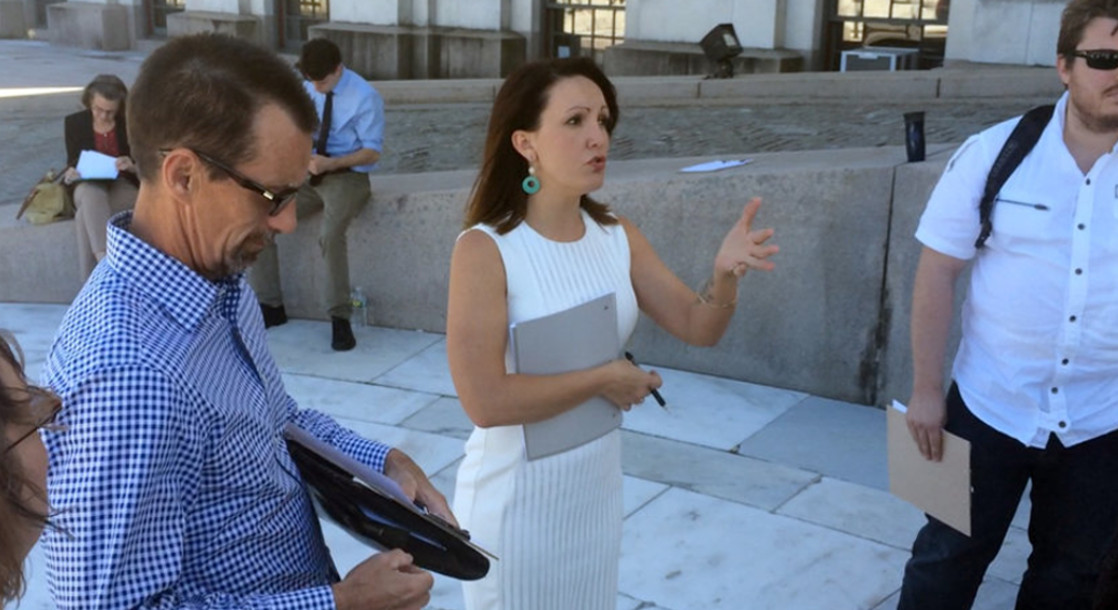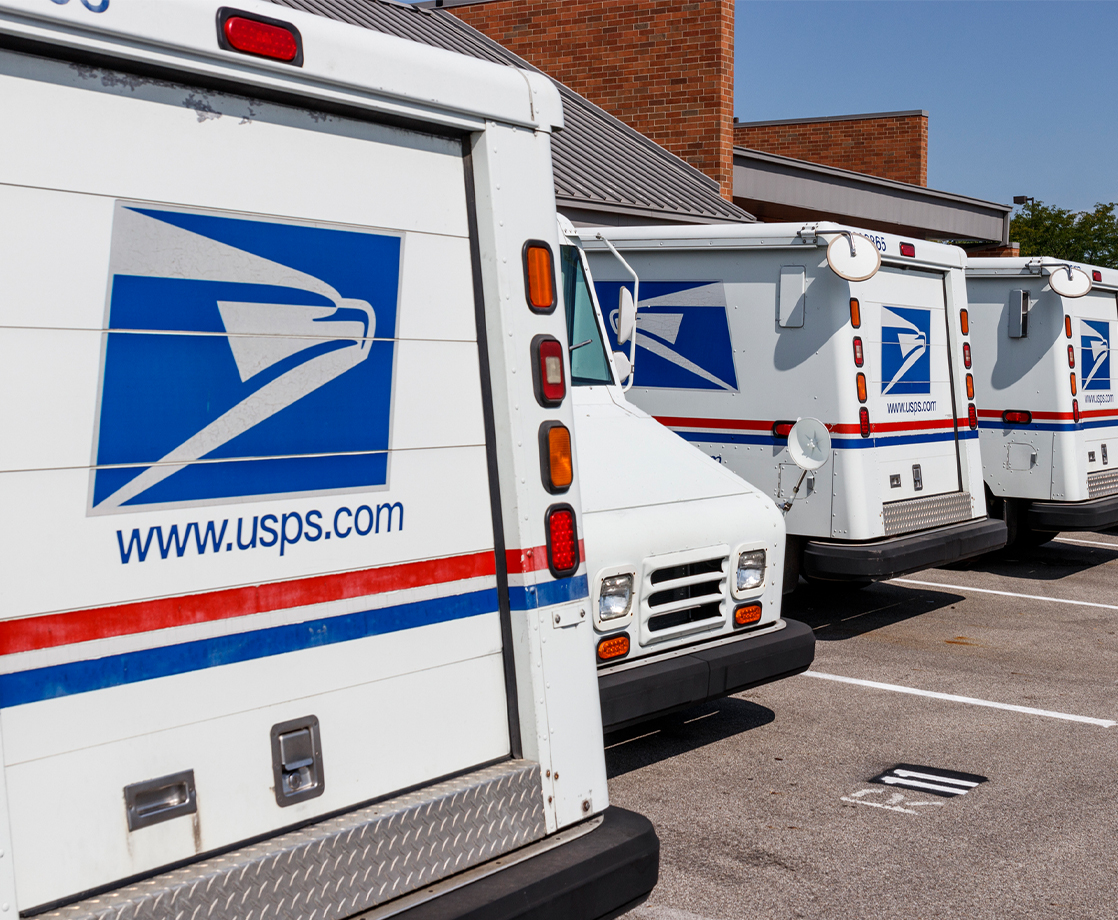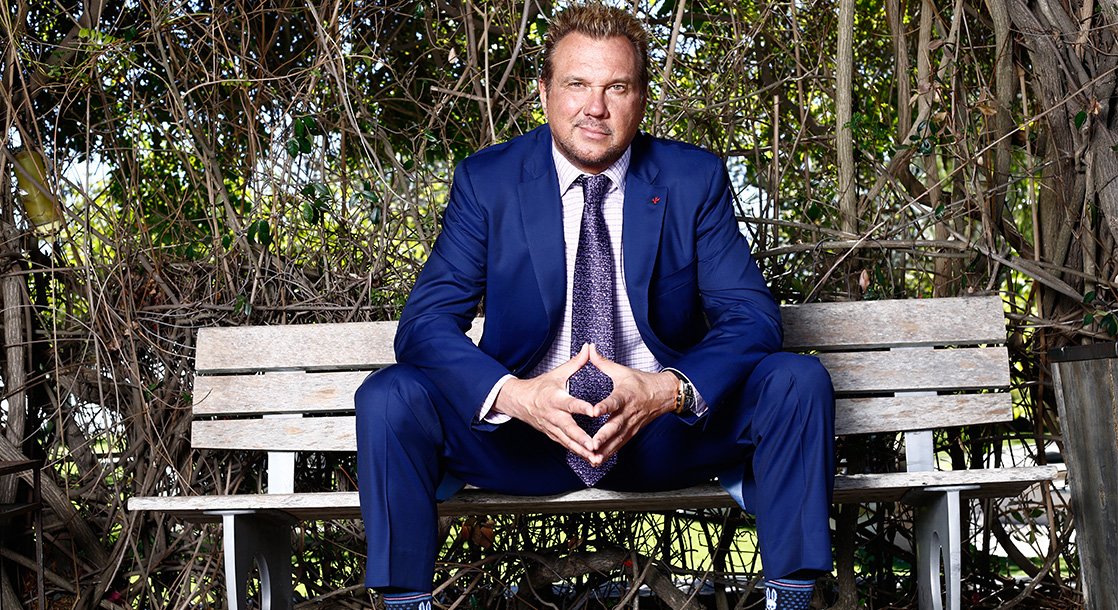Photo via Alison Hartson
Though Californians have long been on the frontlines of cannabis legalization, less could be said of their elected representatives. Only recently has incumbent Senator Dianne Feinstein — who faces a primary election on June 5th — begun to vocalize support for legal marijuana, despite over twenty-five years of serving as the Golden State’s top lawmaker in Washington. But Alison Hartson, one of the Democratic challengers aiming for Feinstein's seat, says she's personally never had to "evolve" on the matter of legal cannabis, because she's supported it all along.
As the former national director of Wolf-PAC, whose mission is to end political corruption, Hartson spent her time knocking on doors and working with legislators campaigning for an Constitutional amendment that would overturn the Supreme Court’s ruling on Citizens United and related cases. Prior to that, she worked as a public high school teacher in a low-income district. "Through my experience being part of the working class, teaching in this school, and seeing how legislation affects our schools and communities, I decided that ultimately if we're going to be able to solve the problems we're facing in this country and address corrupting influence, we need to get policies passed that we need," Hartson tells MERRY JANE.
Running with the Justice Democrats, Hartson posted a video in April criticizing Feinstein's long-held stance on cannabis legalization. Just a week later, Sen. Feinstein flipped her position on pot, coming out in favor of states' rights to decide on cannabis legalization for themselves. Despite Hartson’s blunt pro-pot stance, she’s received little attention compared with another pro-cannabis candidate, California State Senate President Kevin de León. Even so, Hartson has been polling a only few points behind de León, in spite of his campaign’s superior funding and media coverage.
Taking a page from Bernie Sanders’ playbook, Hartson has financed 72 percent of her $500,000 campaign with small dollar contributions of $200 or less, while less than seven percent of de León's $1.5 million campaign and less than five percent of Feinstein's $15 million campaign came from small donations, she points out. "That means more human beings, more individuals, are donating to my campaign than to theirs," says Hartson, who has more than 1,800 volunteers supporting her electoral effort.
"In the last five years, I've been getting at the root cause of all the issues we're facing, and I firmly believe that if we're going to get something like a restructuring of our drug schedule, if we're going to get criminal justice reform, which ends the War on Drugs and makes sure marijuana is legal, you need enough people in office who truly believe this and live it," says Hartson, who also has family members who use medical marijuana to treat Parkinson's disease and other conditions.
"[Cannabis] is just one of many issues where it's so easy to say the right things during an election, but the question we have to be asking is, 'Where have your actions proven that you really are on the side of the people?'" says Hartson. Senator Feinstein has a long track record of opposing marijuana reform, even warning against legalizing adult-use cannabis in California in 2016 (which prevailed regardless of her advocacy).
"For me, it's a personal kind of tribute for my family and community; it's a no-brainer," she adds. "It's not something you should have to move on or be convinced about by your constituents. Even de León had to evolve on this issue."
If elected, Hartson says she would support legislation aiming to decriminalize or legalize cannabis across the country. "I'm supportive of removing [cannabis] from scheduling altogether at the federal level so states can feel their laws are protected," she says. Hartson particularly likes the racial justice component of Sen. Cory Booker's Marijuana Justice Act, as well as Rep. Jared Polis' Regulate Marijuana Like Alcohol Act.
Though Hartson says she believes cannabis should be completely legal, she also argues that there needs to be a way, in a legal atmosphere, to protect small businesses and implement antitrust laws. "You know as soon as we legalize it, big industry will come in and monopolize the entire market," she says. "Which is why you have to have that conversation simultaneously while legalizing it."
A self-proclaimed champion of the underdog, Harton aims to look out for small business, racial minorities, and lower-income communities; all of which have something to gain — and lose — on account of marijuana policy.











